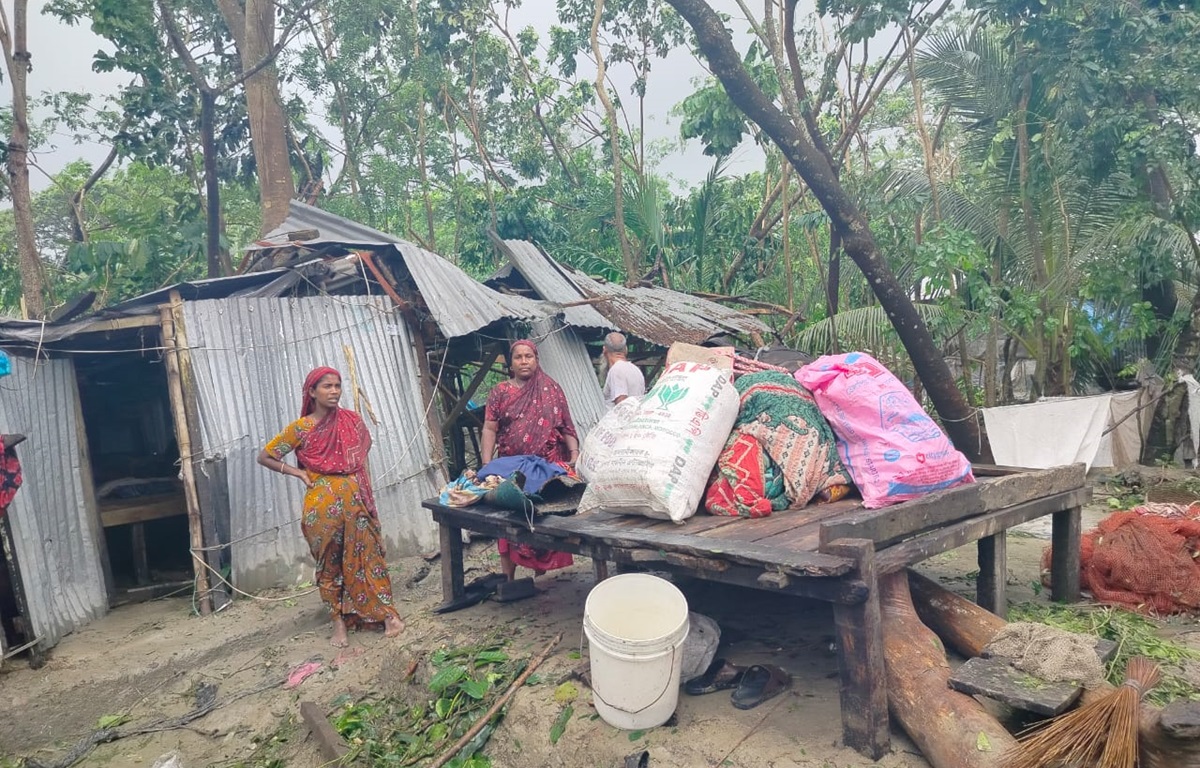BRAC assists families recovering from Cyclone Remal
Cyclone Remal struck Bangladesh on May 26, leaving a trail of destruction, injuries, and 16 deaths in its wake.
The storm waters and rains, powered by high winds ruined fisheries and crops, washed away livestock, and damaged 173,866 houses. BRAC’s early estimates suggest a long-term economic loss of approximately $128 million. The fisheries and livestock sectors reported a loss of over $76 million. High waters breached coastal embankments, leading to extensive flooding, as well as contamination of freshwater sources, and agriculture.
BRAC has been closely monitoring cyclone Remal’s impact and coordinating with relevant government agencies, humanitarian clusters, and partners at both national and local levels.
Supporting people who need BRAC the most
BRAC teams are prioritizing women-led households, aging adults, pregnant women, and persons with disabilities — especially those in hard-to-reach areas. A total of 23,000 BRAC staff, including community health workers and volunteers, are supporting affected communities. BRAC provided early warning and evacuation support across all coastal districts, including cash grants to 50 families in Satkhira. Immediately after the cyclone made landfall, BRAC provided dry food, cooked food, and cash support to 5,376 households in the most affected districts. Teams also distributed temporary shelter items among 1,300 families.
BRAC has contributed more than $850,000 to the relief assistance fund titled ‘Dakche Amar Desh’, which means “Bangladesh is calling.” This includes $340,000 from BRAC staff, who have generously sacrificed one day of their salaries. What’s more, BRAC Bank PLC has donated $250,000. This fund will provide emergency cash support to families to procure essential food packages. It will also help funds the rebuilding homes, water sources, and latrines, and help individuals restore their livelihoods.
“Cyclone Remal has left millions of families in unbearable distress, damaging their homes, land, and sources of livelihood,” says Asif Saleh, Executive Director of BRAC. “Our frontline colleagues, community health workers, and volunteers are on the ground, supporting families in vulnerable conditions. The community needs both immediate relief assistance and long-term rehabilitation and rebuilding support. We are mobilizing our own funds to start the immediate work. However, the need is much greater and requires collective, sustained efforts. We urge all sections of society, including generous individuals, private sector partners, and donor agencies, to come forward and join us.”
Members of the public are to invited to give generously to support BRAC’s emergency response.
- $20 will help a family of four procure essential food items for two weeks.
- $350 enables BRAC’s response team to rebuild public toilet facilities.
- $500 helps a family rebuild their home; $500 can also repair pipes that enable affected communities to access safe drinking water
